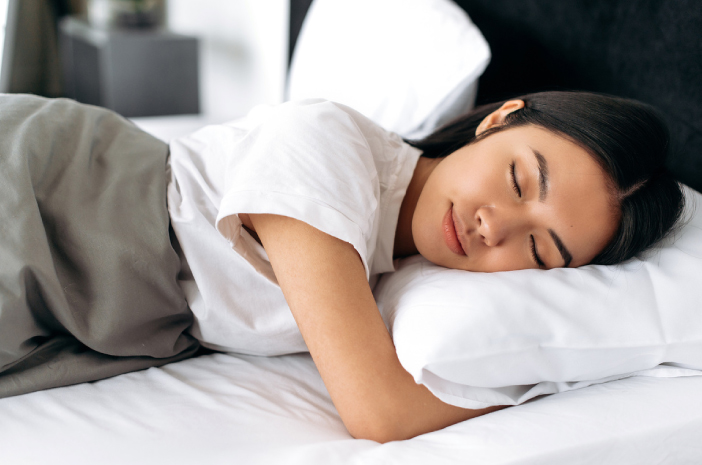Contents
- 1 1. Develop a Consistent Sleep Schedule
- 2 2. Reduce Blue Light Exposure at Night
- 3 3. Create a Comfortable Sleep Environment
- 4 4. Avoid Caffeine and Nicotine
- 5 5. Practice Relaxation Techniques Before Bed
- 6 6. Limit Napping
- 7 7. Maintain a Healthy Diet
- 8 8. Exercise Regularly
- 9 9. Manage Stress and Anxiety
- 10 10. Avoid Alcohol Before Bed
- 11 11. Reserve Your Bed for Sleep
- 12 12. Don’t Force Sleep
- 13 13. Consider Sleep Supplements
- 14 14. Assess Your Mattress and Pillow Quality
- 15 Conclusion
ozeku.com – Sleep is a fundamental need essential for maintaining both physical and mental health. However, many people find it difficult to fall asleep quickly, often due to factors such as stress, poor sleep habits, or sleep disorders. This article provides various tips and strategies to help you fall asleep faster and enhance the quality of your sleep.
Read More: Rekor Piala Dunia: Sebuah Tinjauan Lengkap
1. Develop a Consistent Sleep Schedule
Establishing a regular sleep schedule is key to helping your body get used to a routine. Aim to go to bed and wake up at the same time every day, including weekends. This consistency helps regulate your body’s internal clock, making it easier to fall asleep and wake up naturally.
Read More: Tips Bermain Naruto: Ultimate Ninja Storm
2. Reduce Blue Light Exposure at Night
The blue light emitted by electronic devices like smartphones, tablets, and computers can interfere with the production of melatonin, the hormone that regulates sleep. To prepare your body for sleep, avoid using electronic devices for at least one to two hours before bed. You can also use night mode or blue light filters on your devices to minimize the impact.
Read More: Apple VR: Masa Depan Realitas Virtual dalam Ekosistem Apple
3. Create a Comfortable Sleep Environment

A comfortable sleep environment is crucial for falling asleep quickly. Here are some tips to create an ideal sleep setting:
- Control the Room Temperature: Keep your bedroom at a comfortable temperature, ideally between 18-22°C (64-72°F).
- Turn Off the Lights: Sleeping in complete darkness can help increase melatonin production, allowing you to fall asleep faster.
- Invest in a Good Mattress and Pillow: Choose a mattress and pillow that support your body well and suit your sleeping preferences.
4. Avoid Caffeine and Nicotine
Caffeine and nicotine are stimulants that can disrupt your sleep. Caffeine, found in coffee, tea, and some energy drinks, can stay in your system for several hours. It’s best to avoid consuming caffeine at least 6-8 hours before bed. Similarly, nicotine, found in cigarettes, can make you feel more awake and hinder your ability to fall asleep. Consider reducing or quitting smoking, especially at night.
5. Practice Relaxation Techniques Before Bed
Relaxation is key to preparing your body and mind for sleep. Here are some relaxation techniques to try:
- Meditation or Deep Breathing: Spend a few minutes sitting quietly and focusing on your breath. Inhale deeply through your nose, hold for a few seconds, and exhale slowly through your mouth. This technique can help calm your mind and body.
- Take a Warm Bath: A warm bath before bed can help lower your body temperature and make you feel more relaxed.
- Listen to Soothing Music: Soft, slow music can help lower your heart rate and create a calming atmosphere.
6. Limit Napping
While napping can be beneficial for recharging energy, it can also interfere with your ability to fall asleep at night if not managed properly. Limit naps to 20-30 minutes and avoid napping late in the day, especially after 3 PM.
7. Maintain a Healthy Diet
Your eating habits can significantly affect your sleep quality. Avoid heavy or fatty meals before bed, as they can cause discomfort and make it harder to sleep. Instead, opt for a light snack such as a banana, yogurt, or a handful of nuts, which contain tryptophan, an amino acid that helps produce melatonin. Also, don’t go to bed hungry, as hunger can keep you awake.
8. Exercise Regularly
Regular exercise can help you fall asleep faster and enjoy deeper sleep. Physical activity increases the production of serotonin in the brain and decreases levels of cortisol, the stress hormone that can disrupt sleep. However, avoid exercising too close to bedtime, as it may increase adrenaline levels and make you feel more awake. Try to finish your workout at least 3-4 hours before bed.
9. Manage Stress and Anxiety
Stress and anxiety are common causes of sleep disturbances. To address these issues, try identifying the sources of your stress and finding ways to manage them. Techniques such as meditation, yoga, or journaling can help calm your mind before bed. If anxiety continues to disrupt your sleep, consider seeking help from a mental health professional.
10. Avoid Alcohol Before Bed
While alcohol may make you feel sleepy initially, it can disrupt your sleep cycle. Alcohol can cause fragmented sleep, meaning you may wake up frequently throughout the night, preventing you from getting restful sleep. Additionally, alcohol can worsen sleep disorders like sleep apnea. It’s best to avoid drinking alcohol a few hours before bed to ensure better sleep quality.
11. Reserve Your Bed for Sleep
It’s important to train your body to associate your bed with sleep. Avoid doing other activities in bed, such as watching TV, working, or using your phone. This way, when you lie down in bed, your body will automatically signal that it’s time to sleep.
12. Don’t Force Sleep
If you’re having trouble falling asleep, don’t force yourself to stay in bed. This can lead to frustration and make it even harder to fall asleep. Instead, get out of bed and do a calming activity, such as reading a book with dim lighting or listening to relaxing music. Once you feel sleepy, return to bed.
13. Consider Sleep Supplements
If you still struggle to sleep despite trying various tips, you might consider using sleep supplements like melatonin. Melatonin is a natural hormone produced by the body that helps regulate the sleep-wake cycle. Taking a melatonin supplement can help you fall asleep faster, especially if you have a disrupted sleep schedule or jet lag. However, consult your doctor before taking any sleep supplements to ensure they are safe and appropriate for your situation.
14. Assess Your Mattress and Pillow Quality
The quality of your mattress and pillow can impact your comfort and sleep quality. An old or unsupportive mattress can cause issues like back or neck pain, which can interfere with sleep. Consider replacing your mattress every 7-10 years and choose a pillow that matches your sleep preferences, whether it’s a softer or firmer option.
Conclusion
Achieving quick and quality sleep is crucial for your overall health and well-being. By incorporating the tips above, you can create a sleep routine and environment that support better sleep, helping you fall asleep faster and wake up feeling refreshed and energized. Remember that everyone’s sleep needs are different, so it’s important to find what works best for you. If your sleep problems persist, don’t hesitate to seek help from a medical professional for proper treatment.




